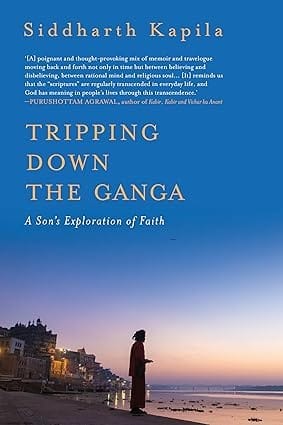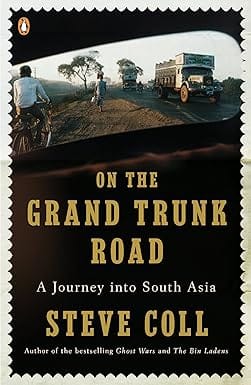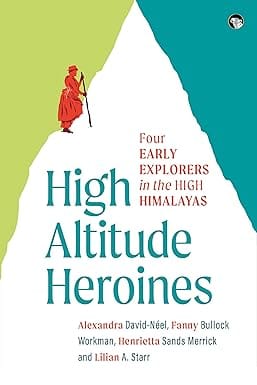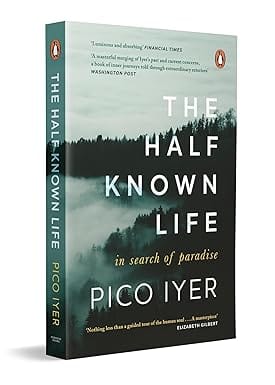- Non-ficton
- Non-ficton
- Contemporary Fiction
- Contemporary Fiction
- Children
- Children
- Comics & Graphic Novels
- Comics & Graphic Novels
- Non-Fiction
- Non-Fiction
- Fiction
- Fiction
As a schoolboy in the early 1990s, Siddharth Kapila began accompanying his devout and intrepid mother on numerous yaatras to sacred sites along the Ganga. In 2015, now a more sceptical young man, he decides to visit them on his own. And over the next seven years, as he journeys from Gaumukh, the source of the river in the high Himalayas, to Ganga Sagar, where it meets the Bay of Bengal, he realizes that he isn’t simply exploring his mother’s faith—the faith of tens of millions of Hindus—but also his own.
Up in Gangotri, he meets renunciant babas who share with him their life stories and their meagre food. In Kedarnath, a sadhu tells him how the Shiva temple miraculously survived the devastating floods of 2013. At Badrinath, he attends a family friend’s marriage to Vishnu, to undo a defect in her horoscope. Walking from Haridwar to Rishikesh with the kanwariyas, many of whom have travelled hundreds of kilometres on foot, he sheds his disdain for these young men often accused of bullying and aggression. In Allahabad—now Prayagraj—he tries to parse facts about the Naga sadhus from legend as he watches them perform astonishing feats of strength. Ancient Varanasi offers diverse experiences, from a bhang-induced revelry on Mahashivratri to conversations on the occult with Aghoris, who tell him why they sometimes feed on the dead. In between, he visits Bodh Gaya, where he prays to Shiva at the Mahabodhi Temple dedicated to Buddha.
Moving back and forth in time, Kapila reflects on the politics—and economics—of religion, the hypocrisy and bigotry of some of his fellow pilgrims, the opportunism of some sadhus and the integrity and compassion of others. And he reflects, too, on the resilience of people’s devotion, the great diversity of Hinduism, and the mighty pull of the Ganga, which keeps bringing him back to itself no matter how hard he reasons against the faith of his birth.
As much an entertaining travelogue as an introspective memoir, Tripping Down the Ganga is an unprecedented book on the everyday Hinduism of believers and non-believers alike.
About the Author
- Home
- Travel & Tourism
- Tripping Down The Ganga A Sons Exploration Of Faith
Tripping Down The Ganga A Sons Exploration Of Faith
SIZE GUIDE
- ISBN: 9789354478901
- Author: Siddharth Kapila
- Publisher: Speaking Tiger
- Pages: 472
- Format: Paperback
- Edition: Signed Book
Book Description
As a schoolboy in the early 1990s, Siddharth Kapila began accompanying his devout and intrepid mother on numerous yaatras to sacred sites along the Ganga. In 2015, now a more sceptical young man, he decides to visit them on his own. And over the next seven years, as he journeys from Gaumukh, the source of the river in the high Himalayas, to Ganga Sagar, where it meets the Bay of Bengal, he realizes that he isn’t simply exploring his mother’s faith—the faith of tens of millions of Hindus—but also his own.
Up in Gangotri, he meets renunciant babas who share with him their life stories and their meagre food. In Kedarnath, a sadhu tells him how the Shiva temple miraculously survived the devastating floods of 2013. At Badrinath, he attends a family friend’s marriage to Vishnu, to undo a defect in her horoscope. Walking from Haridwar to Rishikesh with the kanwariyas, many of whom have travelled hundreds of kilometres on foot, he sheds his disdain for these young men often accused of bullying and aggression. In Allahabad—now Prayagraj—he tries to parse facts about the Naga sadhus from legend as he watches them perform astonishing feats of strength. Ancient Varanasi offers diverse experiences, from a bhang-induced revelry on Mahashivratri to conversations on the occult with Aghoris, who tell him why they sometimes feed on the dead. In between, he visits Bodh Gaya, where he prays to Shiva at the Mahabodhi Temple dedicated to Buddha.
Moving back and forth in time, Kapila reflects on the politics—and economics—of religion, the hypocrisy and bigotry of some of his fellow pilgrims, the opportunism of some sadhus and the integrity and compassion of others. And he reflects, too, on the resilience of people’s devotion, the great diversity of Hinduism, and the mighty pull of the Ganga, which keeps bringing him back to itself no matter how hard he reasons against the faith of his birth.
As much an entertaining travelogue as an introspective memoir, Tripping Down the Ganga is an unprecedented book on the everyday Hinduism of believers and non-believers alike.
About the Author
User reviews
NEWSLETTER
Subscribe to get Email Updates!
Thanks for subscribing.
Your response has been recorded.

India's Iconic & Independent Book Store offering a vast selection of books across a variety of genres Since 1978.
"We Believe In The Power of Books" Our mission is to make books accessible to everyone, and to cultivate a culture of reading and learning. We strive to provide a wide range of books, from classic literature, sci-fi and fantasy, to graphic novels, biographies and self-help books, so that everyone can find something to read.
Whether you’re looking for your next great read, a gift for someone special, or just browsing, Midland is here to make your book-buying experience easy and enjoyable.
We are shipping pan India and across the world.
For Bulk Order / Corporate Gifting
 +91 9818282497 |
+91 9818282497 |  [email protected]
[email protected]
Click To Know More
INFORMATION
QUICK LINKS
ADDRESS
Shop No.20, Aurobindo Palace Market, Near Church, New Delhi














